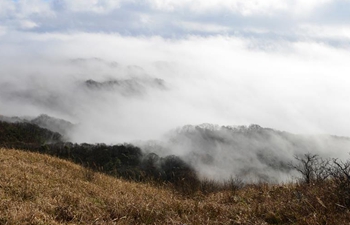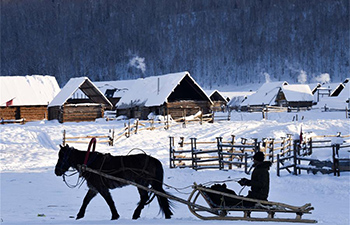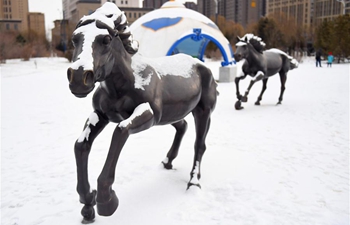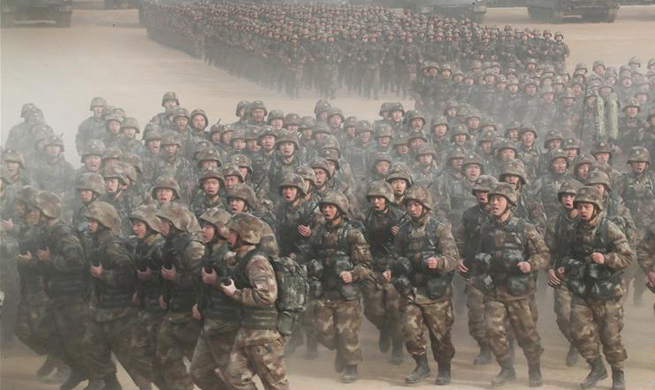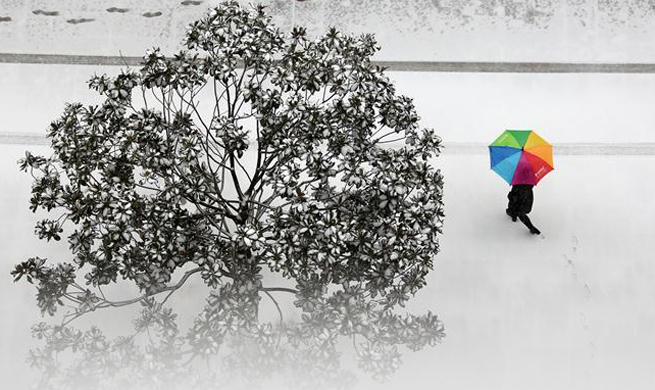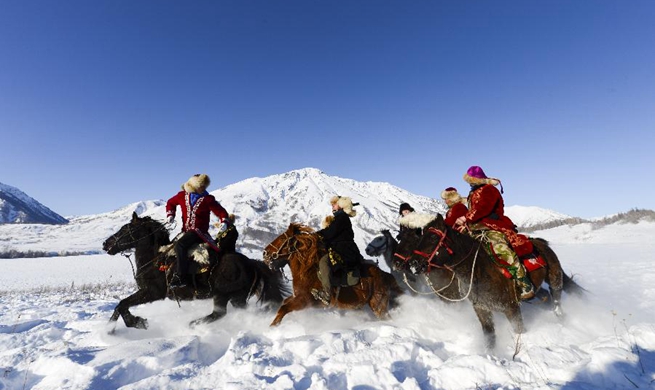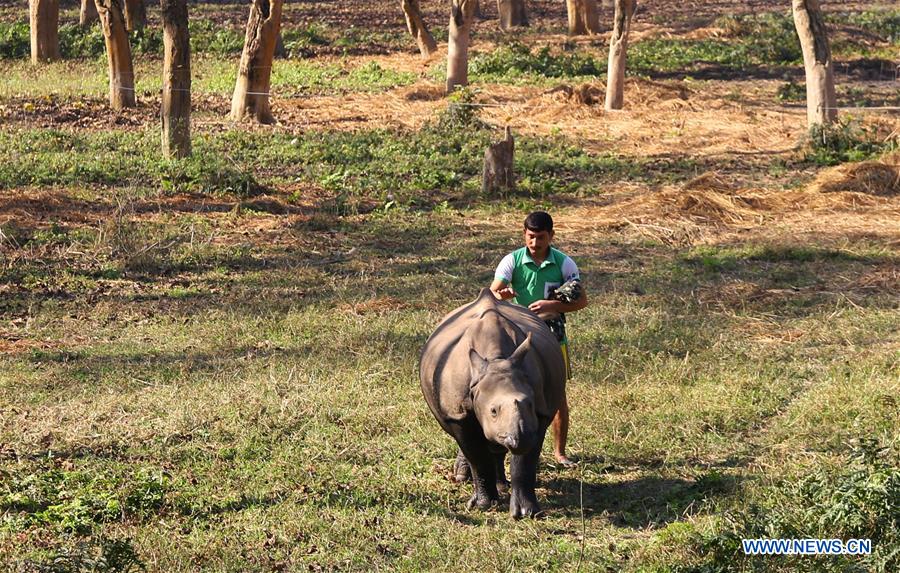
A baby rhino is seen at the premises of National Trust for Nature Conservation at Chitwan National Park, Nepal, Jan. 7, 2018. The rhino was rescued after an attack by a tiger in the jungle of western part of Chitwan National Park. (Xinhua/Sunil Sharma)
by Shristi Kafle
CHITWAN, Nepal, Jan. 7 (Xinhua) -- Nepal is a happy home of 645 one-horned rhinoceros as per the 2015 census, out of which, 605 are in Chitwan National Park, rhino's largest habitat in the country.
However, the massive flood in Nepal's southern region in August last year washed away various wildlife including over a dozen of endangered rhinos from the park.
Authorities joined hands with the bordering Indian national park officials and rescued 11 rhinos altogether. Among them, three baby rhinos were rescued from the tiger attacks in the park.
Out of these, the adult rhinos have already been sent back to the natural habitat after treatment while baby rhinos are receiving special care and attention within the premise of National Trust for Nature Conservation (NTNC).
"Two rescued baby rhinos have been kept under our surveillance and they are in healthy state," Ram Kumar Aryal, an official at the Biodiversity Conservation Centre under NTNC, told Xinhua on the spot.
Out of two male baby rhinos, the elder one was rescued from the tiger attack by a team of authorities from a place called Meghauli, located in the park. The rhino was found in an abandoned condition with severe wounds all over the body.
Later, he was brought to the NTNC and provided with medical treatment and care. Today, the rhino named after the place of rescue Meghauli gazes around the nearby forest during day while stays in human friendly environment during night.
The younger one, rescued from flood from Triveni, some 70 km away, stays inside the special enclosure for whole day. The age of this rhino is estimated to be seven months old, which got departed from his mother during the massive flood.
During the time of rescue, the park officials found that this baby rhino was living in a forest for whole day while used to live with buffaloes in the shed located in a nearby village during night.
"The story of this baby rhino is very touching and compelled us to believe that even wildlife seek family environment and safety during darkness," Aryal explained.
The rescued rhinos are looked after by 25-year-old caretaker Lakhan Chaudhary, who pays special attention to their daily life, meal and nutrition and behavioral change.
Despite of the cold winter morning, dressed in a light jacket, Lakhan was found preparing a meal of fruits and milk for the mammals.
"I am attached with these baby rhinos. Though they don't allow others to stand nearby, they regard me as their friend. I don't get scared at all rather I feel happy to take care of them", Lakhan Chaudhary, who joined the office three months ago, told Xinhua.
Lakhan serves the rescued rhinos during both day and night while offers them two meals a day. The rhinos are provided with milk, fruits and special nutrition supplements.
Officials informed that the rescued wild lives will be left in forests for re-wilding after keeping in observation till they reach the age of two years.
Till then, they are kept under the monitoring of technicians and vetnary doctors.
Dr. Amir Sadaula, a wildlife vetnary doctor, told Xinhua, "The elder rhino had severe wounds so we treated him with regular dressing, painkiller and antibiotics. Now, it's comparatively better and safe. The younger one is in regular supervision and its health condition is good."
The authorities believe that rescue and protection of wildlife in such human friendly and special manner contributes to the growth rate of one-horned rhinos, which are on the verge of extinction globally.
"Within nine months, we rescued 14 rhinos including that of trans-boundary, which is a great achievement in the wildlife sector," the NTNC official Aryal said.
His statement comes at a time when the Nepali government has recently adopted The Greater One-horned Rhinoceros Conservation Action Plan (2017-2021).
With this, the government estimates the total number of rhinos in Nepal to be 750 to 800, till the end of the action plan.





